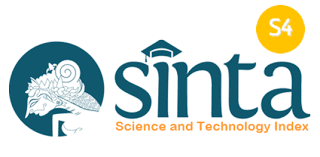Analysis of the Implementation of IPAS (Natural and Social Sciences) Learning in the Merdeka Curriculum
Abstract
IPAS (Natural and Social Sciences) Learning in the Merdeka Belajar Curriculum is an essential component of educational development in Indonesia. In IPAS learning, students are equipped with the knowledge and skills necessary to comprehend complex natural and social phenomena and make informed decisions based on available evidence and data analysis. As social beings who interact daily with the natural and social environment, this subject is crucial for acquiring the required knowledge and skills. Achieving this goal necessitates proper planning, implementation, and evaluation. In this article, a qualitative descriptive literature review method is employed, involving the collection of information and data using various library materials such as documents, books, magazines, historical narratives, and others. This approach leads to the conclusion that the planning of IPAS learning encompasses analyzing Learning Outcomes (LO) to formulate learning objectives and the sequence of learning objectives, planning and conducting diagnostic assessments, developing teaching modules, teaching with LO stages and student characteristics, planning, implementing, and processing formative and summative assessments, reporting learning progress, and evaluating learning and assessment. Regarding the implementation, it involves several stages including introduction, orientation activities, pre-perception activities, motivation activities, core activities, and closure activities. However, the implementation of learning activities is inseparable from the core learning experiences as outlined in Permendikbud Regulation Number 81 A of 2013, Attachment IV, which specifies five core learning experiences: observing, questioning, gathering information/experimenting, associating/processing information, and communicating. As for the evaluation phase, it consists of several stages that are adapted to the curriculum, using assessments such as rubrics, checklists, progress graphs, projects, written tests, oral tests, assignments, portfolios, and other relevant assessments related to the materials taught by educators.
Downloads
Copyright (c) 2023 Rofiatus Surul, Lilla Septiliana

This work is licensed under a Creative Commons Attribution-ShareAlike 4.0 International License.









